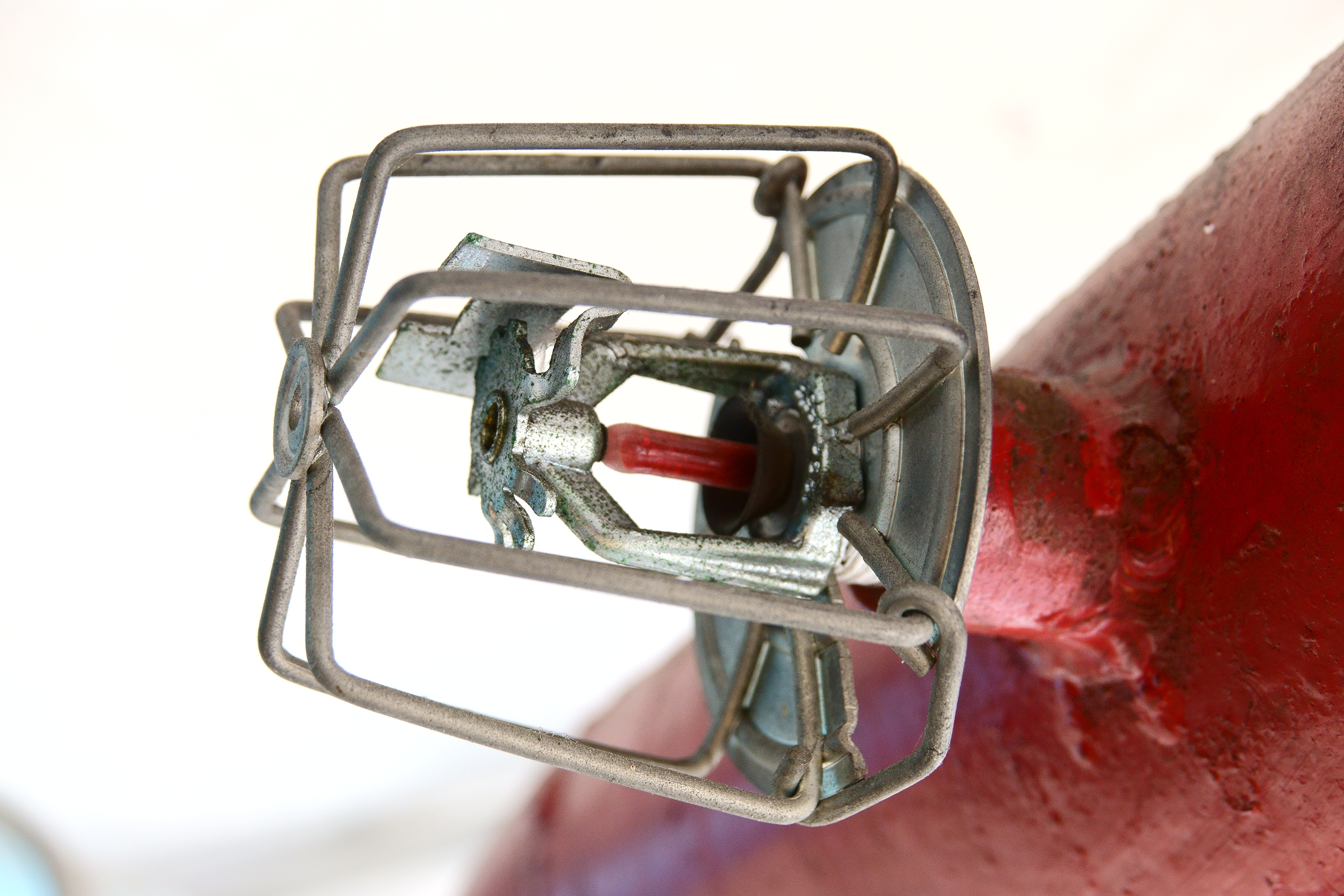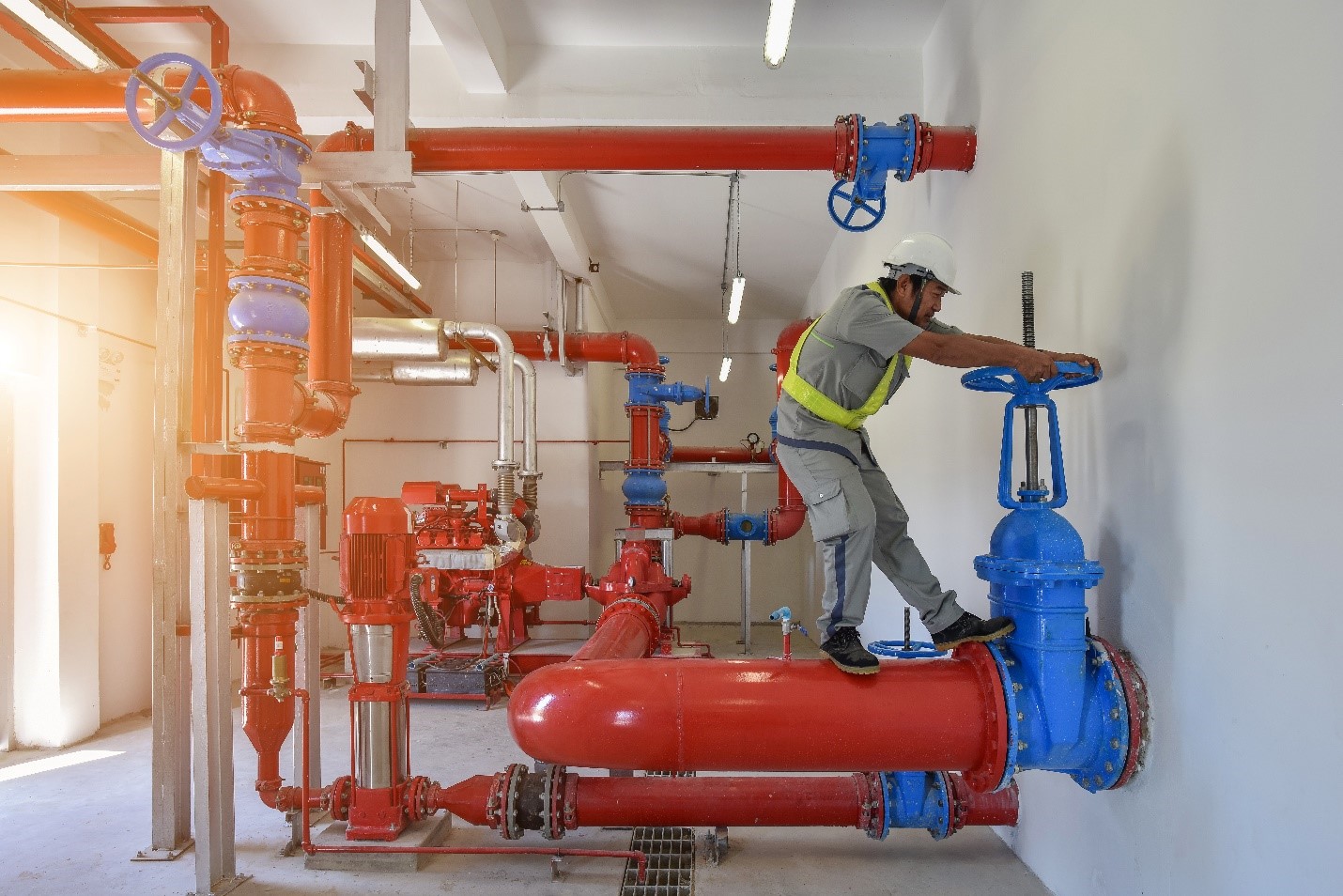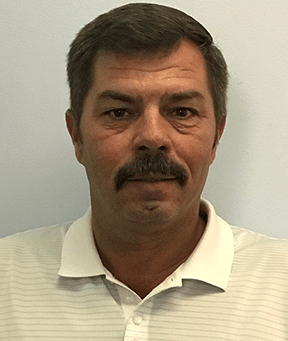
Your commercial fire sprinkler system is the first line of defense when fire breaks out. It can control a fire and keep it small while protecting occupants and your business. So, how do you know if your fire sprinklers will work when needed?
By following the required fire sprinkler inspection, testing, and maintenance schedules set by the National Fire Protection Association (NFPA) your local Authorities Having Jurisdiction (AHJ), and taking a few other preventative steps, your sprinkler system should function as designed.
The death rate per 1,000 reported fires was 87% lower in properties with sprinklers than in properties with no automatic extinguishing system (AES). – NFPA Report, U.S. Experience with Sprinklers, 2010-2014
.jpg?width=5900&height=3939&name=AIE%20Fire%20Sprinkler%20Inspection%20(shutterstock).jpg)
When To Inspect Your Fire Sprinkler System
All commercial entities and nonprofit organizations must follow the NFPA 25 Standard for the Inspection, Testing, and Maintenance of Water-Based Fire Protection Systems. Your local AHJ may also have further requirements.
NFPA25 requires inspections of your system on this schedule:
- Weekly: dry, pre-action, deluge systems gauges, control valves.
- Monthly: wet pipe system gauges, alarm valves.
- Quarterly: control valves, hydraulic nameplates.
- Annually: building, hanger/seismic bracing, pipes/fittings, sprinkler heads, information signage, spare sprinkler heads, pre-action/deluge valves, dry pipe valves, backflow prevention assemblies.
- Every 5 years: internal inspection of sprinkler piping, obstructions, check valves.
Who Performs The Various Fire Sprinkler Inspections?
Weekly inspections may be performed by a designated staff member trained in the proper NFPA25 Standards and local code compliance. He or she should check for normal air and water pressure on the dry, pre-action, and deluge systems gauges, and ensure control valves are not leaking or locked, that they are sealed and open.
Monthly inspections can also be completed by your on-site fire protection personnel. These employees will inspect wet pipe systems gauges, verify water pressure is being maintained and there are no signs of physical damage. Additionally, inspect alarm valves for physical issues.
Your fire sprinkler system’s quarterly, annual, and five- and ten-year inspections, along with testing, maintenance, and repairs must be performed by a licensed fire protection technician who retains comprehensive records for a minimum of one year and can to produce these records when requested.
In 97% of fires with operating sprinklers, five or fewer heads operated. Reported sprinkler failures (660 per year) were twice as common as reported fires in which sprinklers were ineffective and did not control the fire. – NFPA Report, U.S. Experience with Sprinklers, 2010-2014

Fire Sprinkler Corrosion Inspections
While NFPA 25 provides some basic requirements for the 5-year internal inspections, some systems may call for a more in-depth investigation. Aging systems, systems developing corrosion-related leaks, or systems protecting high-risk mission critical structures are perfect candidates for a video scoping corrosion assessment.
Review of the available sprinkler drawings, leak history, and a site survey allows for representative portions of the system to be video scoped to determine the location and severity of corrosion within the piping. The video footage can be used to determine whether there is an obstruction risk within the piping and what pipe may need to be replaced to limit future leak risk. In many systems, corrosion is localized to portions of the system piping and complete system replacement is rarely warranted.

Fire Sprinkler Testing & Maintenance
A fire sprinkler test is a more involved physical check to validate that the system is working properly. Repair and maintenance must be performed to keep fire sprinklers and their components in top working condition. The following lists provide the required testing and maintenance timelines.
Fire Sprinkler Testing Timeline
- Quarterly, semi-annual, and annual fire sprinkler system testing and tagging must be performed and documented by a licensed technician in accordance with NFPA25 and your AHJ.
- Quarterly: mechanical alarm devices, main drain.
- Semi-annually: vane and pressure switch type devices.
- Annually: control valves, pre-action/deluge valves, dry pipe valves, backflow prevention assemblies.
- Every 5 years: sprinklers exposed to extra-high temperatures and harsh environments, along with gauges on all sprinkler system types.
- Every 10 years: dry sprinklers; sprinklers with fast-response elements that have been in service for 20+ years.
- Other: test standard-response sprinklers after 50 years; then in 10-year intervals.
Fire Sprinkler Maintenance Timeline
Fire sprinkler system maintenance is an essential step that should never be skipped. Without regular maintenance, your sprinklers may appear to be working and test okay once a year, but without lubrication, tightening of loose bolts, cleaning, and clearing lines, they could have a shortened life span and may not work at the most crucial time − during a fire.
- As needed: repair and maintain parts that appear questionable during visual inspections/testing.
- Annually: lubricate control valves, clean interior of the pre-action/deluge valve and dry pipe valves; repair/replace parts as needed.
- Other: Examine systems for internal obstructions and corrosion where conditions exist that could cause these. Correct if it has not been corrected.
When sprinklers were present, flame damage was confined to the room of origin in 96% of fires compared to 71% of fires without AES, a difference of 25%. – NFPA Report, U.S. Experience with Sprinklers, 2010-2014
Reduce Commercial Fire Risk & Save Lives
AIE and ECS want to stress how imperative it is to your business and its occupants that your fire sprinklers work without fail, 24/7/365. Regular inspections, testing, and maintenance will reduce your fire risk and save lives. If you suspect something may be wrong with any component of your commercial fire protection system, or you wish to schedule an inspection, contact us today. 800-892-9863


